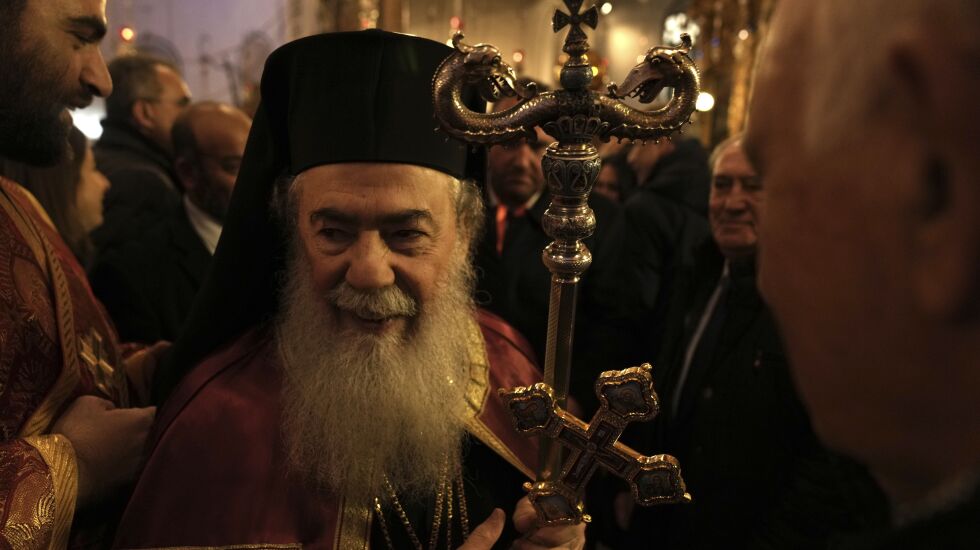
While many who celebrate Christmas in Chicago are taking down their holiday lights and freezing the last of their fruitcakes, Orthodox Christians are just getting started.
Orthodox Christmas starts at midnight Saturday in churches that follow the Julian calendar instead of the Gregorian calendar. Orthodox Christians balked when the Vatican standardized the Gregorian calendar in 1582 and now celebrate annually on Jan. 7.
Orthodox Christians make up around 12% of Christians worldwide, numbering around 260 million, according to the Pew Research Center. The first Eastern Orthodox Christian churches in Chicago were founded by Greek, Russian and Serbian immigrants.
Celebrations look and feel similar to those of Christians in the Western world in December, said Rev. James Mikhail, priest at St. Paul Coptic Orthodox Church in Logan Square.
The holiday also commemorates the birth of Jesus and is celebrated with religious services, large meals and family gatherings, Mikhail said. Some Orthodox Christians exchange gifts, while others do so nearly three weeks earlier, to commemorate the Feast of St. Nicholas.
Across Chicago, Eastern Christians with roots in the Russian, Ukrainian, Greek, Ethiopian and Coptic orthodox traditions will bring elements of their cultures to the weekend’s festivities.
At St. Paul, about 150 congregation members will join Friday night services, when clergy members and children will participate in a ritual procession through the church to offer round breads made with yeast to the altar. The priest then chooses one bread to symbolize the “lamb of God” — or the removal of sin with the birth of Jesus — in the Christian tradition.
Some Orthodox Christians also fast from meat and dairy for 40 days before they mark the birth of Jesus, echoing the time Moses waited to receive the word of God in the Old Testament, Mikhail said.
Though the liturgy typically goes until midnight, St. Paul, to accommodate families, will finish at 10:30 p.m., followed by a feast.
The menu at St. Paul’s will include beef kofta and chicken kebabs, labor-intensive stuffed grape leaves, and “any dessert you can think of — people will go crazy with cheesecakes and chocolate cakes,” Mikhail said.
Elsewhere in the city, traditional holiday foods from Ethiopia, Ukraine, Russia and Greece will grace holiday tables. Grilled beef sausages, stuffed cabbage and Česnica — a buttery Christmas bread — offer residents a taste of the Balkans. Meanwhile, many Ethiopian households will have eaten red lentils and Kik Alicha, a split pea stew.
Though Chicago’s Coptic Orthodox churches are tight-knit and meet once a month, Christmas is a time for individual congregations to hold each other close, Mikhail said.
For those with young kids or hectic work schedules, Orthodox Christmas can be a time to reconnect, drawing more congregants than other services.
“Every congregation has its own kind of demographic,” Mikhail said. “We have a lot of people that work on weekends and a lot of people that travel, a lot of young professionals…people will make it a point to take that time off.”
Two of the four Coptic Orthodox Churches in the Chicago area — St. Mark’s in Burr Ridge and St. Mary’s in Palatine — will offer separate services in English and Arabic. A third, St. George’s in Monee, will switch between English and Arabic during the liturgy.







